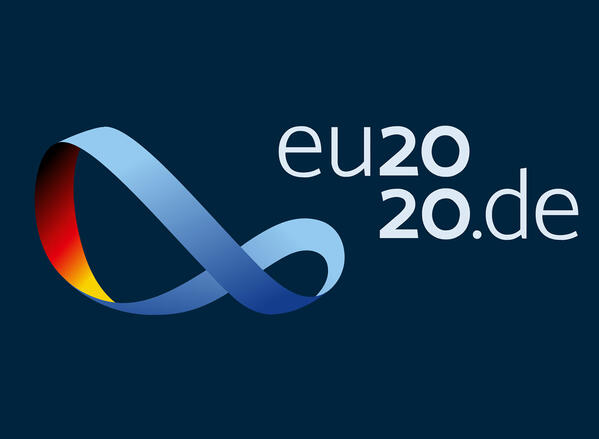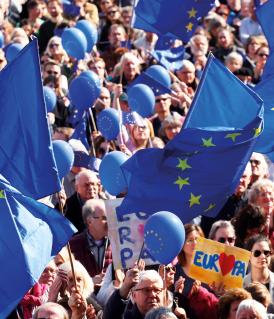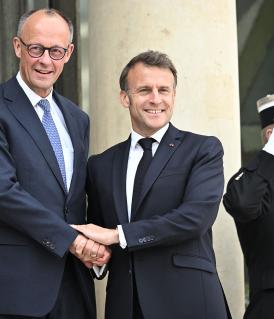Trio-Council Presidency seeks to strengthen Europe

The Council of the European Union Council of the European Union The Council (of Ministers) is the most important EU legislative committee. Each member country delegates one minister. The Council and the EU Parliament share legislative powers and responsibility for the EU budget. The Presidency of the Council) rotates every six months. Read more › , also known as the Council of Ministers, deliberates, together with the European Parliament, on the legislation and coordinates the policies of the 27 member states. Germany took over the leadership of the European Union Council from 1 July 2020 to 31 December 2020. Portugal took over on 1 January 2021, followed by Slovenia on 1 July 2021. The three countries together form a Trio Pres European Union European Union In 1957, Germany was one of the six founding members of today’s EU, along with France, Italy, Belgium, the Netherlands and Luxembourg. The EU is currently made up of 27 states; the euro is the official currency in 20 of them. For Germany, European integration forms the basis for peace, security and… Read more › , also known as the Council of Ministers, deliberates, together with the European Parliament European Parliament The European Parliament is the parliamentary organ of the European communities. It is made up of 705 members who are directly elected by the population of the 27 member states for five years. Each member state is allocated a certain number of seats depending on the size of its population. Germany,… Read more › , on the legislation and coordinates the policies of the 27 member states. Germany took over the leadership of the European Union Council from 1 July 2020 to 31 December 2020. Portugal took over on 1 January 2021, followed by Slovenia on 1 July 2021. The three countries together form a Trio Presidency of the Council of the European Union.
Germany assumed the EU Council Presidency for the 13th time. The last time it held the presidency was in the first half of 2007. The Trio Council Presidency was introduced officially in 2007-8, with Germany, Portugal and Slovenia at that time working together as the first trio.
Conferences chaired by the relevant ministers
The Council Presidency represent the EU Council as regards other EU institutions and in certain cases on the international stage, too. It organises and chairs all the Council meetings. This can amount to more than 1,500 meetings over the course of the six months. The relevant minister heads the meetings and Council formations. By way of example, as regards foreign affairs, during the German EU Council Presidency this role fell to German Federal Foreign Minister Heiko Maas.
Central objective: Overcoming the Corona crisis
The EU Council Presidency involves demonstrating common resolve and ensuring the member states close ranks in the EU Council. This procedure is intended to obtain the best results for the EU and its citizens. The focal point of the joint Presidency is overcoming the Corona crisis. The following key topics are also part of the common programme announced by Germany, Portugal and Slovenia:
- The EU’s multiannual financial framework 2021–2027 will be adjusted to the requirements arising from the impact of the Corona pandemic.
- The countries commit to upholding a just and social Europe while simultaneously promoting European interests and values world-wide.
- Europe’s digital transformation will be advanced while adhering to human rights Human rights The respect and strengthening of human rights worldwide are a cornerstone of German Federal Government policy. Together with its EU partners it is committed to protecting and continually advancing human rights standards throughout the world. This occurs in close collaboration with the institutions… Read more › and protecting citizens.
- As regards migration, the trio is committed to developing permanent, crisis-proof solutions.
- The economic emphasis will be on further advancing a just European single market.
- The EU’s industrial competitiveness will be strengthened, taking particular account of SMEs SMEs The German economy is characterized first and foremost by small and medium-sized enterprises as well as the self-employed and the independent professions. Some 99.4 percent of all companies are small and medium-sized enterprises. These are firms with annual sales of below EUR 50 million and a… Read more › . At the same time, the Economic and Monetary Union will be given greater depth.
- The European Green Deal will be supported by investments in all regions toward supporting the creation of a climate-neutral and green Europe.
- In terms of foreign policy, the plan is to further promote the European values on the international stage, to continue the expansion process in the Western Balkans, and to strengthen cooperation with Africa. Another focal point will be European defence policy.
The official trio programme.

